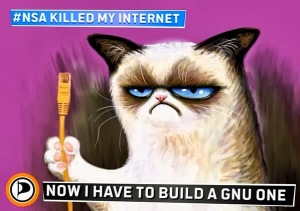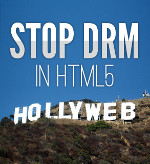 I just listened to a Cory Doctorow lecture he gave at the Central European University in Budapest.
I just listened to a Cory Doctorow lecture he gave at the Central European University in Budapest.
The lecture recounts the same themes and ideas he talked about in numerous other lectures and wrote about in his book “Information Doesn’t Want to Be Free“. The difference about this lecture is that it was targeted at a somewhat less-technically oriented audience, and therefore includes basic high-level explanations as to why there are no such things as “golden keys” to cryptography.
I recommend sharing this with less technically inclined friends and family who care about freedom, surveillance and related policy.
Also, this cat.


